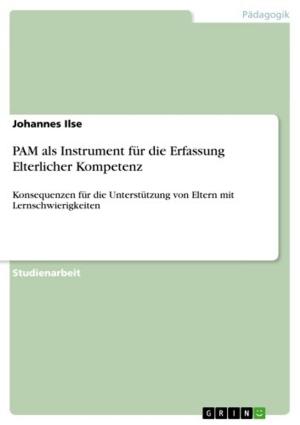The Failure of Wilsonian Idealism in US Foreign Policy
A discussion of Woodrow Wilson's rational approach in the pursuit of idealistic foreign policy goals in the interwar years (1919-1938)
Nonfiction, Entertainment, Drama, Anthologies| Author: | Sarah Winkelmann | ISBN: | 9783668079489 |
| Publisher: | GRIN Verlag | Publication: | November 3, 2015 |
| Imprint: | GRIN Verlag | Language: | English |
| Author: | Sarah Winkelmann |
| ISBN: | 9783668079489 |
| Publisher: | GRIN Verlag |
| Publication: | November 3, 2015 |
| Imprint: | GRIN Verlag |
| Language: | English |
Seminar paper from the year 2014 in the subject American Studies - Culture and Applied Geography, grade: 1.00, Jacobs University Bremen gGmbH, language: English, abstract: This paper's thesis is that President Woodrow Wilson's rational approach in the pursuit of idealistic foreign policy goals produced an indication among other factors of a failure of the mandate system and the system of collective security in the interwar years (1918-1938). Maintaining world peace after the 'war to end all wars' (Knock, 1992) can be regarded as the decisive message of US President Thomas Woodrow Wilson's speeches on the 'Peace without victory' on 22nd January 1917 in front of the Senate and on the 'Fourteen Points for Peace' on 8th January 1918 in front of the Congress. Fuelled by the post-war 'excitement of the moment' (McNamara and Blight, 2001) and 'feeling[s] of supreme optimism, moral conviction, and idealism' (McNamara and Blight, 2001), Wilson demanded the formation of the League of Nations, an institutional framework that would enforce democratic decision-making outcomes and guarantee the establishment and maintenance of a 'peace without victory'. The paper's discussion of the United States foreign policy is conducted in two dimensions. The theoretical dimension will outline the concept of liberal internationalism and Wilsonian idealism by analyzing his speech of the 22nd January 1917 in front of the Senate and the 18th January 1918 in front of the Congress. It will further define the concept of Realpolitik that expresses ideas of rationality in foreign policy decision-making and present its boundaries and alternatives. The practical dimension will apply the theoretical groundwork on two incidents: Administration and distribution of pre-war colonies and the idea of collective security.
Seminar paper from the year 2014 in the subject American Studies - Culture and Applied Geography, grade: 1.00, Jacobs University Bremen gGmbH, language: English, abstract: This paper's thesis is that President Woodrow Wilson's rational approach in the pursuit of idealistic foreign policy goals produced an indication among other factors of a failure of the mandate system and the system of collective security in the interwar years (1918-1938). Maintaining world peace after the 'war to end all wars' (Knock, 1992) can be regarded as the decisive message of US President Thomas Woodrow Wilson's speeches on the 'Peace without victory' on 22nd January 1917 in front of the Senate and on the 'Fourteen Points for Peace' on 8th January 1918 in front of the Congress. Fuelled by the post-war 'excitement of the moment' (McNamara and Blight, 2001) and 'feeling[s] of supreme optimism, moral conviction, and idealism' (McNamara and Blight, 2001), Wilson demanded the formation of the League of Nations, an institutional framework that would enforce democratic decision-making outcomes and guarantee the establishment and maintenance of a 'peace without victory'. The paper's discussion of the United States foreign policy is conducted in two dimensions. The theoretical dimension will outline the concept of liberal internationalism and Wilsonian idealism by analyzing his speech of the 22nd January 1917 in front of the Senate and the 18th January 1918 in front of the Congress. It will further define the concept of Realpolitik that expresses ideas of rationality in foreign policy decision-making and present its boundaries and alternatives. The practical dimension will apply the theoretical groundwork on two incidents: Administration and distribution of pre-war colonies and the idea of collective security.















